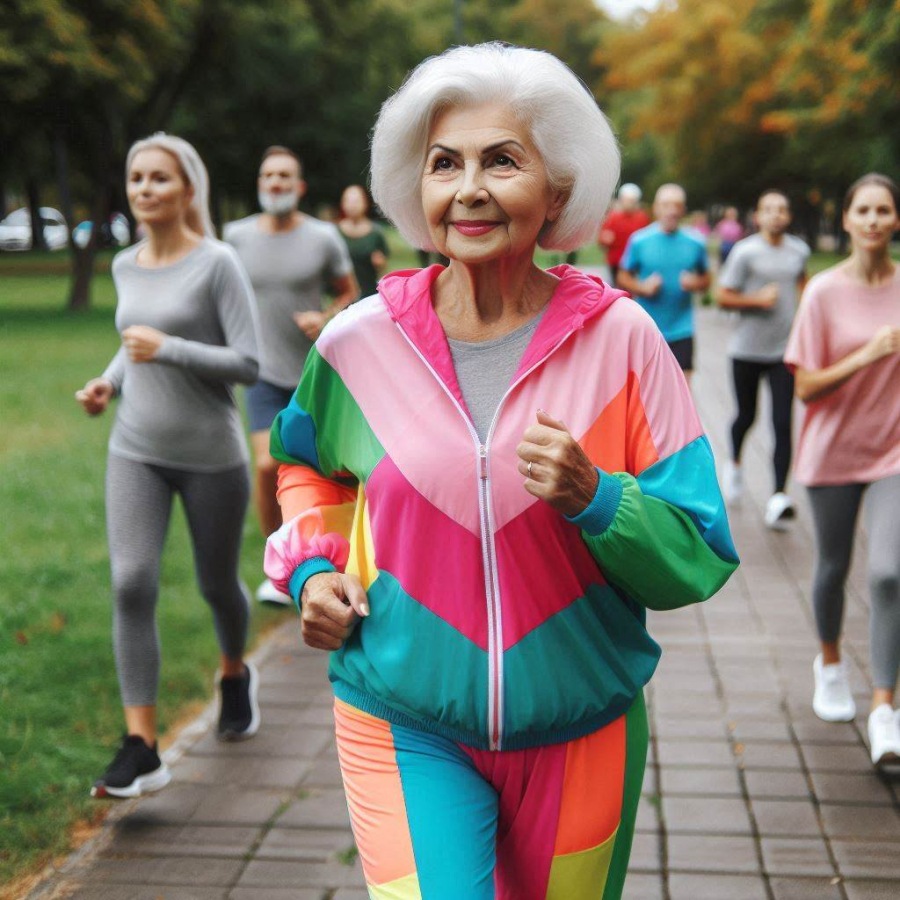A 2019 study by Stanford University in the US found that aging markers in the blood increase significantly at the ages of 34, 60, and 78.
According to Dr. Miao Yang, head of the Cardiology Department at the hospital affiliated with the Institute of Medical Science, China Academy of Medical Sciences, after the age of 60, the body is more prone to age-related frailty, and the organs and tissues become more vulnerable. The risk of developing chronic diseases such as cancer, diabetes, and heart disease also increases.
Immunity declines at this stage, making the elderly more susceptible to respiratory illnesses, cognitive decline, and reduced mobility. A balanced diet and regular exercise can help improve the health of those over 60.
It is important for middle-aged and elderly individuals to eliminate bad habits that can cause long-term harm.
Overeating
Eating disorders are a common issue among the elderly, especially those with Alzheimer’s disease or other forms of dementia. Several studies have linked overeating to brain function decline and negative impacts on memory in older adults.
After 60, the metabolism slows down, and overeating puts pressure on the digestive system, leading to indigestion, acid reflux, high blood sugar, and obesity due to excess calories.
Middle-aged and elderly individuals should aim for a comfortable fullness of about 70-80%, eat smaller meals more frequently, and chew slowly and thoroughly. After eating, it is advisable to sit and rest or walk gently to aid digestion.

Middle-aged and elderly individuals should aim for a comfortable fullness
Over-exercising or lack of exercise
While exercise is often touted as a longevity “medicine,” both overdoing it and being sedentary can be detrimental to health. Lack of exercise contributes to weight gain, obesity, an increased risk of gallstones, osteoporosis, high blood pressure, and a weakened immune system. On the other hand, overexercising can lead to injuries, muscle strain, fatigue, joint pain, fractures, and even stroke in those over 60.
A study published in the Mayo Clinic Proceedings journal found that people who exercised between 2.5 and 4.5 hours per week had the lowest risk of early death, a 40% reduction compared to non-exercisers. However, exercising more than 10 hours per week increased the risk of mortality. Therefore, older adults should choose suitable exercises, warm up adequately, and maintain a reasonable level of activity.

Exercising more than 10 hours a week increases the risk of mortality
Sleeping less than 7 hours
Adequate sleep not only improves overall health but also regulates metabolism and hormone release, aiding in nightly cell regeneration.
Research indicates that consistently sleeping less than seven hours can negatively affect the cardiovascular, endocrine, immune, and nervous systems. Sleep deprivation increases the risk of diabetes, cardiovascular disease, high blood pressure, depression, and stroke.
Insufficient sleep also impairs mental clarity and increases the risk of falls or accidents. Therefore, older adults should prioritize sleep quality and aim for 7-8 hours of sleep nightly.

Not drinking enough water
A study published in the medical journal The Lancet asserted that adequate daily water intake could slow aging and prolong life. For middle-aged and older adults, dehydration can lead to increased sodium levels in the blood, rapid heart rate, insomnia, constipation, and an elevated risk of chronic diseases and premature death.
Dehydration in older adults can also increase the risk of colorectal cancer due to the buildup of toxins in the body. Therefore, it is crucial for this age group to maintain a daily water intake of 6-8 glasses, include water-rich fruits and vegetables in their diet, and avoid excessive evening water consumption to prevent overworking the kidneys.
Unlock 8 Benefits with a Daily 5-Minute Jog
Living a hectic lifestyle can make fitting in time to exercise difficult. However, studies have revealed that even just 5 minutes of jogging a day can lead to positive outcomes for your health, including a decrease in the risk of developing cardiovascular disease, extending your life span by up to 3 years, or even reducing the susceptibility to heart disease.
How to Make Sure You Buy the Perfect Mattress for Optimal Sleep and Health
Want to know the essentials of selecting a quality mattress that will give you a peaceful night’s sleep and boost your health? Look no further! This article provides all the key advice for finding a mattress that suits your specific needs and ensures you get a well-deserved rest. Get the important information you need to make the perfect mattress choice right here.




































